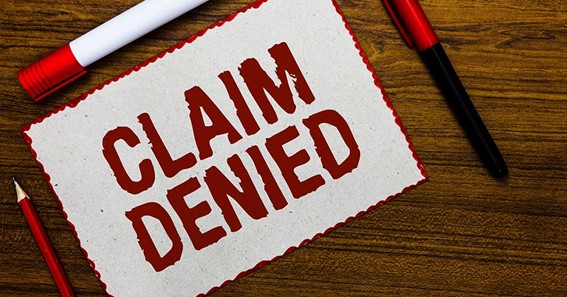Do you know medical claims are a major part of the profitability of a healthcare facility? When a claim gets denied it can also be a major reason for revenue loss. Denials can negatively impact a practice’s overall cash flow and efficiency.
No doubt, re-submitting denied medical claims is a very frustrating and time-taking process. That’s why to prevent significant claim denials healthcare professionals need the right denial management solutions in place. Because the longer a practice billing staff wait to appeal denied medical claims, the longer healthcare providers wait to collect their payments. Or worse- they would not get paid at all.
click here – 7 Unbeatable Benefits of Using Buy Now, Pay Later Option
According to the AAFP (American Academy of Family Physicians), the average denial rate in the US healthcare industry is between 5 to 10%. However, almost two-thirds of medical claim denials are recoverable.
If healthcare providers implement the right denial management solutions at the right time they can easily keep their claim denial rate below 5%. That results in boosting cash flow and a medical practice’s overall profitability.
Let’s review some common types of denials and potential mistakes that cause medical claim denial. Here are two types of denials.
- Soft denials:
- Usually called “rejected” rather than “denied”.
- An interim or temporary denial.
- It can be paid if additional information is added or the claim is corrected.
- For example, missing or invalid information, and missing documentation related denials.
- Hard denials:
- It can not be corrected or reversed.
- Resulted in written-off or lost revenue.
- For example, eligibility, authorization, and non-covered services related denials.
Possible Reasons for Claim Denials:
Managing medical billing services in-house can be a frustrating task for medical professionals while trying to provide excellent patient care. That’s why many healthcare providers often failed to collect payments from the payers due to not efficiently managing billing & coding tasks. That results in denials and significant revenue loss. Here are some common reasons for medical claim denials;
- Incorrect procedural or diagnostic codes.
- Wrongly or partially filled claim forms.
- Missing or invalid modifiers.
- Medical claim filed too late.
- Lack of proper pre-authorization or prior authorization.
- Services not covered.
- Lack of medical necessity.
- Submitted duplicate claim.
- Bundled services.
- Use an out-of-network provider.
- The patient has not met the deductibles or copays for the calendar year.
Best Practices for Reducing Claim Denials:
Here offer the best practices that a healthcare practice can follow to improve denials.
- Patient data quality: Accuracy plays an essential role in the medical billing process. The front-end staff of a healthcare practice must be diligent, efficient, organized, and thorough while collecting data from patients. Because a single mistake i.e putting the wrong code or misspelling can cause denial that results in loss of revenue.
So, always confirm the spelling of the patient’s name, date of birth, responsible party, and medical plan number before processing the claim.
click here – Gold IRA FAQ
- Constant staff training: Due to the ongoing pandemics, coding regulations, billing requirements, payer plans, and federal policies are constantly changing. And when a healthcare facility fails to update on all these changings it will result in claim denials.
That’s why providing regular training sessions and education to front-end and back-end staff is essential to stay updated.
- Timely filing: Each insurance company has its own time limit during which a medical claim must be submitted to be considered for payment. It ranges from 15 days to 1 year from the date of service.
When a medical facility fails to submit a medical claim within the required time period, it can hold healthcare providers back from getting reimbursements. However, medical practitioners can prevent denials by automating medical billing systems i.e. using EHR/EMR systems, to get your claims process back on the right track.
- Ensure claim scrubbing: Claim scrubbing is a process of identifying and rectifying mistakes/errors in claims and codes before a claim is sent to the insurance company. This process helps to prevent a number of medical claims that are denied/rejected and results in on-time payments.
Most medical claim denials are caused due to coding. By using electronic claim scrubbing tools; these errors are rectified on the spot. And results in cleaner claims, fewer denials, faster payments, less work, and more cash flow.
- Utilize innovative billing tools: Advanced technology plays an essential role in the healthcare industry. Many healthcare practices still in this modern era use manual or outdated systems that cause discrepancies or errors and result in delayed/denied reimbursements.
By using advanced tools healthcare providers can improve their clean claim rate. These tools also help to track all claims comprehensively and help in eliminating the errors. That eventually results in maximum revenue collection.
Take The First Move:
According to the HFMA (Healthcare Financial Management Association), approximately 65% of all medical claim denials aren’t resubmitted. That’s why medical professionals aren’t getting reimbursed for the services they are providing. That results in a loss of significant revenue. It’s all because of medical practitioners who haven’t a strategic action plan to manage denials effectively.
If healthcare providers want their claim denials rate low and improve their business growth. Then outsourcing medical billing services to a third party is one of the best decisions. The outsourced billing collection agency has professional staff. That ensures a 100% clean claim submission process and results in streamlined cash flow, reduced administrative and financial burden.
